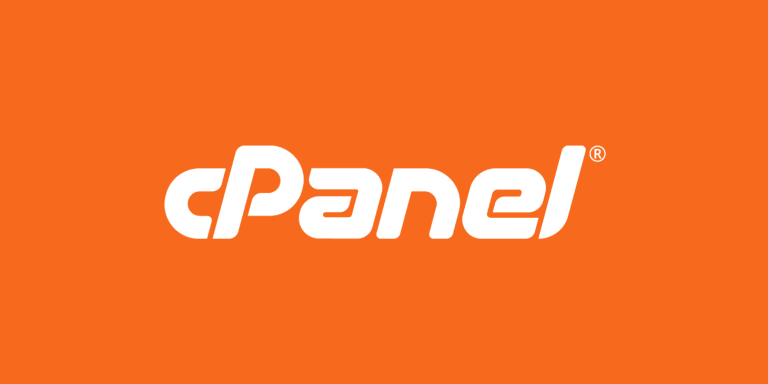Best Practices for Web Hosting Security
In today’s digital landscape, ensuring robust security measures for your website is paramount. With cyber threats evolving constantly, implementing best practices for web hosting security is crucial to safeguarding your online presence. From protecting sensitive data to maintaining website integrity, understanding and implementing these practices can help mitigate risks and maintain trust with your audience. In this guide, we’ll explore essential security measures and strategies for web hosting, empowering you to fortify your website against potential threats and ensure a secure online environment for your business or personal endeavors.
Table of Contents
Understanding Web Hosting Security
Understanding web hosting security is essential for safeguarding your online assets. With best practices for web hosting security, you can protect your website from various cyber threats and vulnerabilities. This involves implementing robust security measures such as encryption, firewalls, and regular software updates. By comprehending the risks and implementing proactive security measures, you can mitigate the likelihood of data breaches, malware infections, and other security incidents. Additionally, staying informed about emerging threats and adhering to industry standards can further enhance your website’s security posture, ensuring a safe and reliable online experience for both you and your users.
Choosing a Secure Web Hosting Provider
Selecting a secure web hosting provider is critical for safeguarding your website and data. 1REALTOUR, as a reputable hosting provider, offers robust security features to protect your online assets. With state-of-the-art encryption protocols, regular security updates, and reliable support, 1REALTOUR ensures the highest level of protection for your website. By choosing 1REALTOUR as your hosting provider, you can trust that your website is in safe hands, allowing you to focus on growing your online presence without worrying about security threats.

Implementing Secure Password Practices
Implementing secure password practices is crucial for enhancing web hosting security. Encourage users to create strong, unique passwords that include a combination of letters, numbers, and special characters. Additionally, enforce regular password updates to prevent unauthorized access. Consider implementing multi-factor authentication for an added layer of security. Educate users on the importance of password hygiene and provide guidelines for creating and storing passwords securely. Furthermore, consider using password management tools to securely store and manage passwords across your organization. By prioritizing secure password practices, you can significantly reduce the risk of unauthorized access and protect sensitive data stored on your website.
Updating Software and Plugins Regularly
Regularly updating software and plugins is essential for maintaining robust web hosting security. Outdated software and plugins can contain vulnerabilities that hackers exploit to gain unauthorized access to your website. Therefore, prioritize staying informed about the latest security patches and updates released by software vendors and plugin developers. Implement a regular schedule for updating your website’s software and plugins to ensure they are always running the latest versions. Consider enabling automatic updates whenever possible to streamline the process and minimize the risk of overlooking critical updates. By staying proactive with software and plugin updates, you can strengthen your website’s defenses against cyber threats and safeguard your online assets.
Enabling HTTPS Encryption
Enabling HTTPS encryption is a critical step in enhancing web hosting security. HTTPS encrypts data transmitted between a user’s browser and your website, protecting it from interception by malicious actors. To enable HTTPS, obtain an SSL/TLS certificate from a trusted Certificate Authority (CA) and install it on your web server. Once installed, configure your website to redirect HTTP traffic to HTTPS to ensure all communication is encrypted. HTTPS encryption not only protects sensitive information such as passwords and payment details but also enhances user trust and confidence in your website’s security. By enabling HTTPS encryption, you demonstrate your commitment to safeguarding user data and maintaining a secure online environment.

Implementing Web Application Firewalls (WAF)
Implementing a Web Application Firewall (WAF) is a proactive measure to bolster web hosting security. A WAF acts as a protective barrier between your website and potential threats by monitoring and filtering HTTP traffic. It analyzes incoming requests and blocks malicious traffic, such as SQL injection attacks and cross-site scripting (XSS) attempts, before they reach your web server. To implement a WAF, consider using a cloud-based WAF service or installing a WAF plugin on your web server. Configure the WAF to filter traffic based on predefined rulesets and customize settings to suit your website’s specific security requirements. By implementing a WAF, you can effectively mitigate the risk of common web-based attacks and safeguard your website’s integrity and data.
Regular Backups and Disaster Recovery Plans
Regular backups and disaster recovery plans are crucial components of robust web hosting security. Regularly backing up your website’s data ensures that you have copies of critical files and databases in the event of data loss or corruption. Implement automated backup solutions to schedule regular backups and store them securely offsite or in the cloud. Additionally, develop a comprehensive disaster recovery plan outlining procedures for restoring your website in the event of a security breach or other catastrophic event. Test your backups and disaster recovery procedures regularly to ensure they are effective and up to date. By prioritizing regular backups and disaster recovery planning, you can minimize downtime, mitigate data loss, and recover quickly from unexpected incidents.
Educating Users on Security Awareness
Educating users on security awareness plays a pivotal role in bolstering web hosting security. Provide comprehensive training to users on recognizing common cyber threats, such as phishing emails and malware downloads. Teach them best practices for creating and managing secure passwords, avoiding suspicious links, and practicing safe browsing habits. Encourage users to stay vigilant and report any suspicious activity promptly. Additionally, regularly communicate updates on security policies and procedures to keep users informed and engaged. By fostering a culture of security awareness among users, you empower them to become active participants in safeguarding your website and data against potential threats.

Conclusion
In conclusion, implementing robust security measures is paramount for safeguarding your website and data in today’s digital landscape. By following best practices for web hosting security, such as choosing secure hosting providers, enforcing strong password policies, and staying proactive with software updates, you can significantly reduce the risk of security breaches and data loss. Additionally, implementing encryption protocols, web application firewalls, and disaster recovery plans further fortifies your defenses against cyber threats. However, security is an ongoing process, and regular monitoring, training, and updates are essential to staying ahead of emerging threats. By prioritizing web hosting security, you can protect your online assets and maintain the trust and confidence of your users.
Read More Top Managed Hosting Providers in 2024
FAQ’S
What types of web hosting are available?
Common types include shared hosting, VPS hosting, dedicated hosting, and cloud hosting, each offering varying levels of resources and control.
How do I choose the right web hosting plan?
Consider factors such as your website’s traffic, storage requirements, technical expertise, and budget to select a plan that meets your needs.
Can I transfer my existing website to a new hosting provider?
Yes, you can transfer your website by migrating your files and databases to the new hosting provider’s servers.







